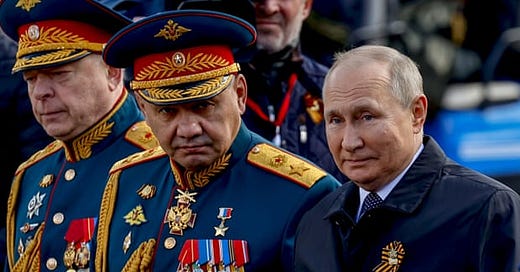Thomas M. Gregg, Indiana
The superiority of diplomacy over war as the solution to disputes between nations is one of those beliefs so widely embraced that it’s hardly questioned. And it’s true in a way that “Jaw, jaw is better than war, war,” as Harold Macmillan put it.1 So why, with a major war now raging in Europe between Russia and Ukraine, does it seem so difficult to get the belligerents and other interested parties to sit down and talk the conflict to death?
Americans who oppose US involvement in the war periodically berate the Biden Administration for its failure to impose a diplomatic solution. V. Putin, they say, must be provided with an “off-ramp”; that is, some sort of face-saving compromise, the tab to be picked up by Ukraine in the form of territorial and other concessions. National Review’s Michael Brendan Dougherty is one such critic. But details tend to be lacking, no doubt because to spell them out would expose the off-ramp for what it is: appeasement. So instead we get a cascade of rhetorical questions; e.g., from Mr. Dougherty: What are the limits of America’s involvement in the war? What will be the status of Crimea? What’s the exit strategy? And so on.
Keep reading with a 7-day free trial
Subscribe to The Cosmopolitan Globalist to keep reading this post and get 7 days of free access to the full post archives.





